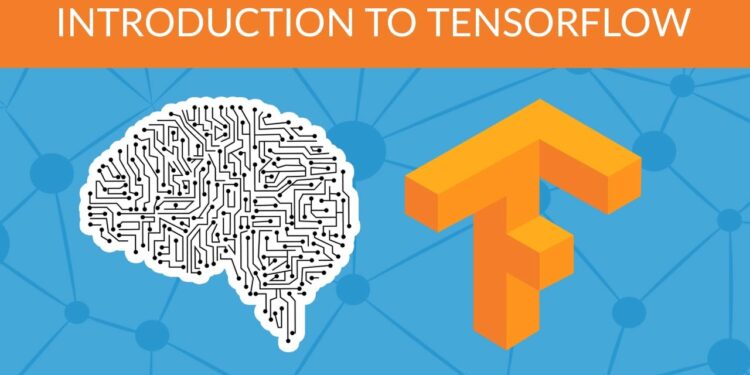Deep Learning with TensorFlow: Unlocking the Power of Neural Networks
Introduction: In the ever-evolving landscape of artificial intelligence and machine learning, deep learning stands out as a transformative technology that has revolutionized various industries. At the heart of this revolution is TensorFlow, an open-source machine learning library developed by Google. In this article, we delve into the world of deep learning with TensorFlow, exploring its concepts, applications, and the impact it has on shaping the future of AI.
Section 1: Understanding Deep Learning:
Deep learning is a subset of machine learning that leverages artificial neural networks to mimic the human brain’s intricate structure. It enables machines to perform complex tasks such as image recognition, natural language processing, and even playing games. Deep learning algorithms learn from data to make predictions and decisions, making them adept at handling unstructured and large datasets.
Section 2: Introducing TensorFlow:
TensorFlow, developed by the Google Brain team, has emerged as one of the leading platforms for building and deploying deep learning models. It provides a flexible and efficient framework to create various types of neural networks, from simple feedforward networks to complex convolutional and recurrent networks. TensorFlow’s architecture is based on computational graphs, allowing users to define and optimize mathematical operations easily.
Section 3: Building Blocks of TensorFlow:
- Tensors: The core building blocks in TensorFlow are tensors, which represent data as multi-dimensional arrays.
- Graphs and Sessions: TensorFlow operates using a directed acyclic graph (DAG) where nodes represent operations and edges define data flow. Sessions execute operations in the graph.
Section 4: Creating Deep Learning Models:
- Defining a Model: TensorFlow allows you to define your neural network architecture using high-level APIs like Keras or lower-level APIs for more customization.
- Layers and Neurons: Construct models using layers that contain interconnected neurons, each contributing to the model’s understanding of the data.
Section 5: Training and Optimization:
- Loss Functions: Choose an appropriate loss function that measures the difference between predicted and actual values.
- Optimizers: Optimize the model’s weights and biases using optimization algorithms like Stochastic Gradient Descent (SGD) or Adam.
Section 6: Practical Applications of Deep Learning with TensorFlow:
- Image Classification: Deep learning has revolutionized image recognition tasks, such as identifying objects in images or even diagnosing medical conditions from medical scans.
- Natural Language Processing: TensorFlow excels in language-related tasks, including sentiment analysis, language translation, and text generation.
- Reinforcement Learning: Discover how deep learning models, combined with reinforcement learning, have achieved impressive results in playing games and controlling complex systems.
Section 7: TensorFlow Ecosystem and Resources:
- TensorBoard: Visualize and monitor the training process, model graphs, and metrics using TensorFlow’s visualization tool, TensorBoard.
- Pre-trained Models: Access a repository of pre-trained models for various tasks through TensorFlow Hub.
- Community and Documentation: TensorFlow has a vibrant community and comprehensive documentation, making it accessible to beginners and experts alike.
Section 8: Challenges and Future Directions:
While deep learning and TensorFlow have achieved remarkable successes, challenges like model interpretability, data privacy, and adversarial attacks remain. The field continues to evolve with ongoing research into more efficient architectures, model compression, and transfer learning.
IBM did offer free courses related to deep learning and TensorFlow on their online learning platform called IBM SkillsBuild. However, please note that offerings and availability might have changed since then. Here’s how you could have pursued a free certification in Deep Learning with TensorFlow from IBM:
- Visit IBM SkillsBuild: Go to the IBM SkillsBuild website (https://skillsbuild.org) and create an account if you don’t have one.
- Explore Available Courses: Look for courses related to Deep Learning and TensorFlow. IBM often offers a range of courses in collaboration with other educational partners. Look for titles like “Deep Learning with TensorFlow” or similar.
- Enroll in the Course: Enroll in the course that matches your interest. These courses might be self-paced, allowing you to learn at your own speed.
- Complete the Course Content: Work through the course materials, which could include video lectures, reading materials, quizzes, and practical exercises. Make sure to engage with the content thoroughly to gain a strong understanding of the concepts.
- Hands-On Practice: Many deep learning courses involve hands-on exercises and projects. Practice using TensorFlow to implement various deep learning models, algorithms, and techniques.
- Assessment and Quizzes: Complete any assessments, quizzes, or assignments that are part of the course. These might contribute to your overall performance and certification eligibility.
- Final Exam or Project: Some courses might require you to complete a final exam or a significant project that demonstrates your practical skills and understanding of deep learning with TensorFlow.
- Certification: If you successfully complete all the requirements of the course, you may be eligible to receive a certification. This certification can be shared on your resume and LinkedIn profile to showcase your skills.














